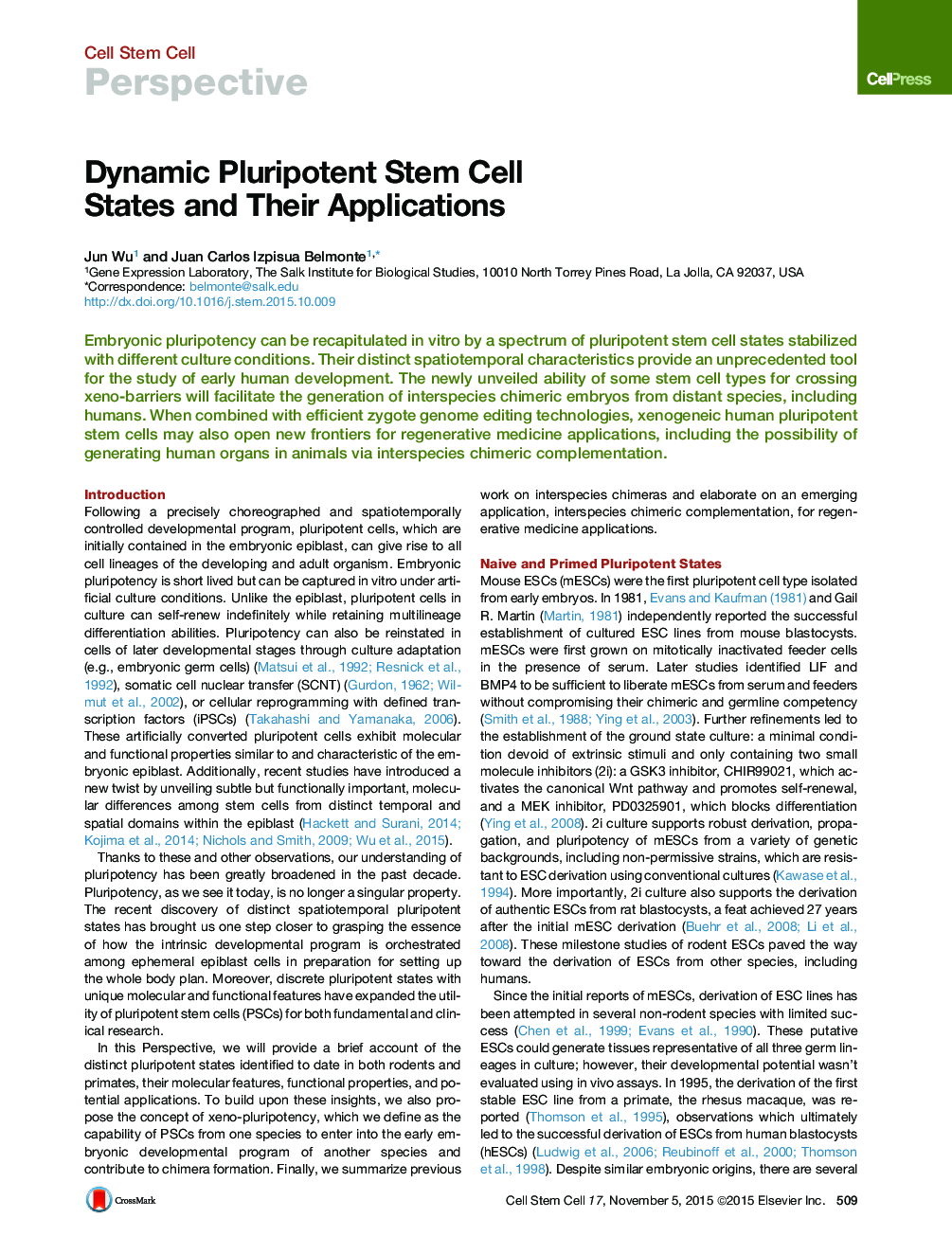| Article ID | Journal | Published Year | Pages | File Type |
|---|---|---|---|---|
| 2077244 | Cell Stem Cell | 2015 | 17 Pages |
Abstract
Embryonic pluripotency can be recapitulated in vitro by a spectrum of pluripotent stem cell states stabilized with different culture conditions. Their distinct spatiotemporal characteristics provide an unprecedented tool for the study of early human development. The newly unveiled ability of some stem cell types for crossing xeno-barriers will facilitate the generation of interspecies chimeric embryos from distant species, including humans. When combined with efficient zygote genome editing technologies, xenogeneic human pluripotent stem cells may also open new frontiers for regenerative medicine applications, including the possibility of generating human organs in animals via interspecies chimeric complementation.
Related Topics
Life Sciences
Biochemistry, Genetics and Molecular Biology
Biotechnology
Authors
Jun Wu, Juan Carlos Izpisua Belmonte,
